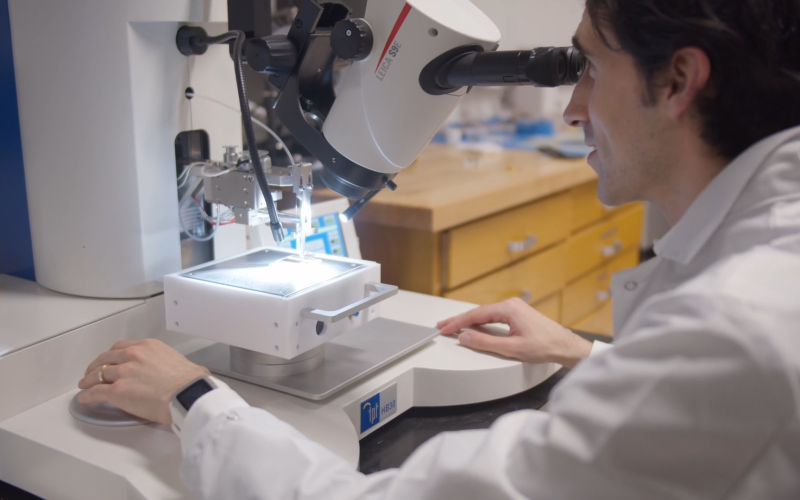CNSE Semiconductor Startup NoMIS Power Receives $207K to Advance EV Charging

ALBANY, N.Y. (Sept. 3, 2024) — NoMIS Power, a UAlbany-supported power semiconductor start-up, has won nearly $207,000 from the U.S. Department of Energy to develop advanced power modules that will revolutionize electric vehicle charging and enhance electric grid infrastructure.
NoMIS Power will collaborate with DOE’s National Renewable Energy Laboratory to develop a 3.3 kV, 200 amp half-bridge silicon carbide (SiC) power module. The technology will enable faster, more efficient and cost-effective EV charging by relying on higher voltages to avoid energy loss from excessive heat.
Currently, faster EV charging relies on higher electrical currents —measured in amps —that limit the efficiency of charging because of the significant heat generated by higher currents. By charging at higher voltage, rather than higher current, more EVs can be charged at any given time in a single location much faster, making EV charging more convenient, practical, and cheaper for the consumer, site host, charge point operator, and utility.
The project focuses on overcoming the limitations of existing silicon-based power modules used in EV fast chargers. Inside EV fast chargers, these power modules are responsible for converting alternating current (AC) to the direct current (DC) that allows faster charging. By replacing silicon with silicon carbide in the semiconductor switches, or transistors, that control the flow of power through the EV fast charger, NoMIS Power aims to achieve higher switching frequencies (up to 10 kHz), and greater efficiency, resulting in the ability to charge more EVs in one place for less time.
With the grant from DOE’s Vehicle Technologies Office, NoMIS Power aims to develop cheaper, more robust, and easily manufacturable SiC power modules compatible with industry-standard processes for EV charger manufacturers. The technology developed in this project has significant implications for two primary applications:
- EV Fast Chargers: Directly driven from medium voltage (MV) AC grid voltages (e.g., 13.8 kV), these chargers will experience lower grid charging currents and reduced energy loss, resulting in higher efficiency.
- Solid-State Transformers: Enhancing the robustness of the electrical grid, supporting power demand surges, and integrating low and high-voltage networks
“Our team is excited to contribute to the advancement of EV charging and grid infrastructure,” said Adam Morgan, CEO of NoMIS Power and a senior research scientist at UAlbany. “This novel SiC technology will also impact other critical technology markets, including medium-and heavy-duty EVs and renewable energy, supporting our company’s near-term product launch of next-generation SiC devices.”
NoMIS Power was founded by Morgan and College of Nanotechnology, Science, and Engineering (CNSE) faculty members Woongje Sung and Shadi Shahedipour-Sandvik at the NY CREATES Albany NanoTech Complex. The company has licensed technology developed by CNSE faculty and received support from UAlbany’s Center for Advanced Technology in Nanomaterials and Nanoelectronics (CATN2), funded by Empire State Development.
The R&D partnership between NoMIS Power and UAlbany’s Center for Advanced Technology has led directly to the commercialization of products developed in university labs, including two new SiC power devices that were developed using a CATN2-funded electrical test system. The test system was used to develop and validate electrical screening test conditions, which are now being implemented during production. These screening conditions are necessary to ensure that the SiC power devices products reaching customers have been rigorously tested, increasing reliability and limiting potential field-failures to less than 0.5 percent.




